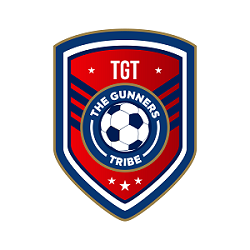The Boom and Bust of North London Economics : Gunners

By Rory Smith
Published July 10, 2020Updated July 11, 2020, 12:20 a.m. ET
Deep down, Arsène Wenger never wanted Arsenal to leave Highbury. He knew, at the turn of the century, it had become too tight, too cramped to contain a club of Arsenal’s ambitions. He knew the waiting list for season tickets ran into the tens of thousands, that Arsenal was sitting on a gold mine it could not tap.
But still: Highbury was home, and he had no desire to move. He loved the marble halls. He loved the history, the familiarity, the closeness. Wenger is, in his heart, a poet: He loved the sense that you could “smell the soul of every guy who has played there.”
In his head, though, he is an economist. If Wenger was to turn Arsenal into the club he wanted it to be, there was only one choice: A new stadium meant more seats for more fans, more visits to the club store, more people spending more money on food and drinks.
ADVERTISEMENT
It meant making $3 million more every time Arsenal played at home, dwarfing the matchday revenue of almost every other club in England, enabling Wenger at last to compete, financially, with Manchester United, to establish Arsenal as English soccer’s other great powerhouse for the new millennium.
Image
Harry Kane and Spurs missed a chance to pull even with Arsenal ahead of Sunday’s North London derby when they were held, 0-0, at Bournemouth on Thursday.Credit…Neil Hall/Reuters
And so Wenger and David Dein, Arsenal’s vice chairman, toured London looking for sites. Wenger contributed to the design of the stadium. He used his name, effectively, as collateral, committing to at least five more years as manager in order to secure bank loans. The Emirates Stadium, Arsenal’s flagship and its future, opened. And then the world changed.
What even Wenger could not have seen coming, of course, was that while the Emirates was being built, Roman Abramovich was buying Chelsea. Two years after Arsenal opened its new home, Sheikh Mansour bin Zayed al-Nahyan’s Abu Dhabi United Group arrived at Manchester City. Between them, the oligarch and the sheikh transformed English soccer’s landscape, bankrolling the sort of unprecedented spending sprees that clubs without unlimited financial support could not match.
ADVERTISEMENT
Arsenal’s plan was outdated even before it had begun. “We had a double handicap,” Wenger would explain, shortly before stepping away from Arsenal. “We had to pay back debt and face competition with clubs who had even more resources than they usually had.”
A little more than a year ago, Daniel Levy, Tottenham’s chairman, sat at a raised dais inside the Tottenham Hotspur Stadium — his club’s flagship and its future — and declared that, at last, Spurs truly belonged in the game’s elite.
Finally, it had a stadium befitting its ambitions (capacity: 62,303, completely coincidentally just a little larger than the Emirates). It had a Michelin-starred restaurant and the biggest single-tiered stand in England and beer glasses that filled from the bottom up. A few miles away, it had a state-of-the-art training facility (completely coincidentally, just a little more state-of-the-art than Arsenal’s).
Image
Daniel Levy boasted last year that Tottenham’s new stadium would close the gap with its bigger rivals. But it has stood empty for months, unable to deliver the revenue the club was counting on.Credit…Richard Heathcote/Agence France-Presse — Getty Images
Now, Levy said at the time, Tottenham was in a position to compete with Europe’s aristocrats. It would use the stadium not only for soccer but for concerts and N.F.L. games and boxing, too, swelling the club’s coffers and ending the lingering impression that it was the poor relation of the Premier League’s Big Six. Now, he said, Tottenham could start winning. And then, within a year, the world changed.
ADVERTISEMENT
This time, of course, it was something that extended far beyond soccer, something that would have ramifications significantly more serious than which team picked up a trophy. It would not only change the landscape of a mere game but the way we all live our lives.
On Sunday, Tottenham will host Arsenal for the first time at its new home. Thanks to the pandemic, it will be a place not of raucous hostility but of eerie quiet. Thanks to the fortunes of the two teams, it will not be a game of national significance but a purely local squabble.
Arsenal is eighth in the Premier League, Spurs ninth. Both are on their second managers of the season. Neither is especially likely to qualify for the Champions League next year. Derbies, the old cliché runs, are about bragging rights. That is not really true. They are only about bragging rights when there is nothing else at stake.
ADVERTISEMENT
It has not been long since the North London derby mattered rather more than this. In March 2016, only a late equalizer from Alexis Sánchez at White Hart Lane prevented Tottenham from going top of the Premier League; Arsenal had been leading the table only a couple of weeks earlier. Both clubs, that year, had a genuine chance to win a title; Leicester City streaked clear instead.
Their paths, since that game, have diverged. Spurs, for a time, became the coming force in the Premier League — Mauricio Pochettino’s team would contend for the championship in 2017, too — and in Europe, too, losing out to Liverpool in last year’s Champions League final.
That final proved the high-water mark: Pochettino left a few months later, replaced by José Mourinho, with little or no discernible uplift in form or purpose. With the benefit of hindsight, it looks to have been a vanity appointment: furniture, to use a preferred Mourinho metaphor, to go with the size of the room, rather than because it fits the design scheme.
Arsenal, meanwhile, has been locked in decline. Wenger left, replaced by the unloved Unai Emery. Mikel Arteta was drafted in, late last year, to start again. The club has changed its entire internal structure, appointing a suite of new executives, toying with a variety of differing visions.
ADVERTISEMENT
None has stuck. Arsenal lacks vision, direction, conviction. It has a manager tasked with promoting youth and a board fixated on offering Pierre-Emerick Aubameyang, an undoubtedly excellent but undeniably 31-year-old striker, a three-year contract.
Image
It has been a season to forget for Dani Ceballos and Arsenal.Credit…Pool photo by Michael Regan
Now, though, Arsenal and Tottenham find themselves in markedly similar positions. The pandemic has torn up the logic of Spurs’ business plan: The club has had to take out an emergency, government-backed loan to buy time.
If fans remain absent from stadiums for many more months, the damage is likely to be severe; all of those other events, the fights and the concerts and the N.F.L. visits, have all been lost. Mourinho, meanwhile, is spending a not-insignificant amount of time explaining the precise shortcomings of many of the members of his squad.
ADVERTISEMENT
The impact on Arsenal is just as significant. According to Deloitte, matchday income generates a quarter of Arsenal’s revenue, more than any of its domestic rivals. The club must come to terms with its absence at a time when — unlike Liverpool, Manchester United and Chelsea, say — its team needs a comprehensive overhaul. It is no wonder Arsenal has been among the clubs leading explorations of how quickly some fans may be able to return to games.
It would be too much of a leap to suggest either club should regret building its stadium; those bricks and mortar provide lasting value. Indeed, in some ways, it is a bitter irony that two teams who have tried to grow as they are encouraged to grow should be hit hardest by shifting circumstances, while those whose investments have been less shrewd might prosper.
The effect, though, is the same. Arsenal and Spurs built their new homes — quite possibly the two most modern club stadiums in Britain — because they believed they would help them compete, because they would help them win. But then the world changed, and the buildings that were once the future stand as monuments to what they were supposed to be.




